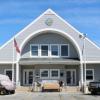Let’s remind ourselves of the truth that the world’s leading scientists and others have been sharing with us for years: climate change is real, levels of greenhouse gases (e.g. CO, methane) are rising and causing global temperatures to rise, ice masses are melting worldwide, and sea levels are increasing; extreme weather events are now the norm. In short, those charged with caring for Mother Earth, us humans, are destroying it.
We’re ruining that which gives us our soil, our clean water and air, all that makes life possible. CO2 levels, currently 412 parts per million and rising faster than ever, have never been greater since civilization began. As President Obama noted: “…there’s one issue that will define the contours of this century more dramatically than any other, and that is the urgent and growing threat of a changing climate.”
The climate situation is real and urgent, and demands the attention of and response from each one of us.
The answers are many and real and tangible (e.g. lowering thermostats in winter, increasing insulation and LED use, recycling better, planting trees, buying carbon offsets, walking and biking more, etc.), but, as noted writer and advocate Bill McKibben advises, becoming aware (respecting the facts, the science, the truth), rallying (e.g. voting), and supporting renewable energy (wind and solar) are the most effective.
What’s proposed for Fenwick Island is a powerful answer. The economy will benefit as jobs in renewable energy continue to grow.
Studies (Firestone and Parson 2018, Biggar Economics 2016) suggest that the net effect of windmills on tourism is negligible and even slightly positive; I, for one, am inspired by the Lewes windmill as it steadily turns to provide all the electricity needed for the University of Delaware campus there as well as for 10 percent of the citizens of Lewes.
Fishing likely will be better as is found at the wind farm less than four miles off the coast of Block Island, Rhode Island: The windmill foundations improve habitat for fish and associated marine life.
At 20 miles out, the proposed windmills will look about the size of your thumbnail; this seems remarkably insignificant given the smokestacks and pollution (e.g. smog, acid rain, oil spills) and extreme weather (e.g. historic wildfires raging in California) that come with fossil fuels.
To care for our neighbors, for our kin, for the animals and plants and all that sustains us, to enjoy life, or even to live, we must change our ways. We must spend more time outdoors appreciating nature, we must consume less, we must control our numbers, and we must get our energy, ultimately, from the sun. For the sake of our children and grandchildren and theirs, we can do better. We must.
Peter K. McLean, Ph.D.
St. Andrew’s School
Lewes




















































